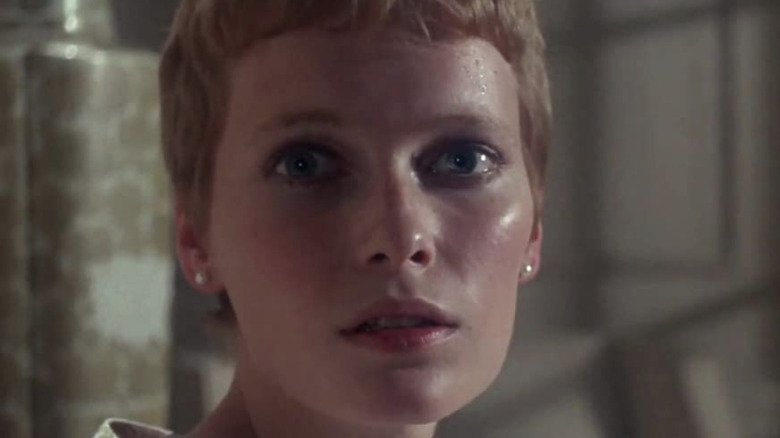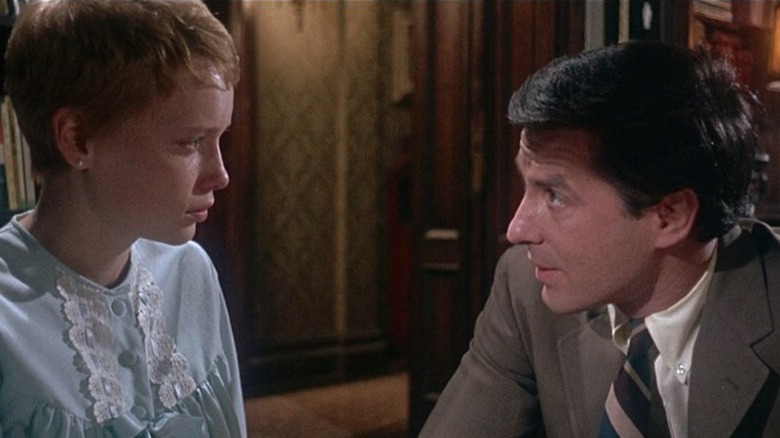The Behind-The-Scenes Drama On Rosemary's Baby That Almost Got Violent
In the summer of 1968, audiences were gifted with the most suffocatingly unnerving and tension-filled psychological thriller to grace the silver screen since Alfred Hitchcock's "Psycho" had debuted eight years prior. The film was Roman Polanski's "Rosemary's Baby," and it was an aggressively faithful adaptation of author and playwright Ira Levin's then-unpublished novel. The feature starred up-and-coming actor Mia Farrow as the pregnant and justifiably paranoid protagonist Rosemary Woodhouse. But if you thought the film's only tension came from the tightly controlled score, mise-en-scene, and onscreen interactions, you'd be wrong. As it turns out, there was almost as much drama off-screen as on, at least when it came to the controversial director's relationship with one of the film's lead actors.
That actor was John Cassavetes, who played Rosemary's alternatively reassuring and menacing struggling actor husband, Guy Woodhouse. The actor had starred previously in TV series like "The Alfred Hitchcock Hour" and "Burke's Law," and had broken into cinema in 1967 with Daniel Haller's "Devil's Angels" and Robert Aldrich's "Dirty Dozen" (via IMDb). It was "Rosemary's Baby," however, that would put the actor permanently on the map, though.
As Farrow revealed in her autobiography (via Goodreads), the experience was no walk in the park for the burgeoning film star when it came to his dynamic with the auteur director.
Polanski and Cassavetes clashed on the set of Rosemary's Baby
Writer Ed Park relayed Mia Farrow's comments in his 2012 Criterion essay, "Rosemary's Baby: 'It's Alive,'" wherein he revealed that "while [Roman] Polanski and Farrow grew close on the set, [John] Cassavetes ... tangled repeatedly with the director." As noted in the Criterion essay (and Farrow's "What Falls Away: A Memoir"), the "Rosemary's Baby" writes that "John became openly critical of Roman, who yelled, 'John, shut up!'" before the two men appeared to start in toward each other. Park also notes that when the two butted heads "as the climactic sequence in the Castevets' apartment was being prepared," there was a "threat of physical violence in the air," and the pair never really got over their inability to see eye-to-eye.
Park goes on to state that Polanski would later write off Cassavetes' body of work as a director and went so far as to tear down the actor-director's performance as Guy Woodhouse. The "Rosemary's Baby" director would go on to say that the actor "knows how to play himself best," while for his part, Cassavetes was just as catty about Polanski. Cassavetes was just as catty about Polanski, apparently remarking (via Criterion), "You can't dispute the fact that he's an artist, but you have to say 'Rosemary's Baby' is not art."
According to Park, the dynamic between director and actor was, in this case, representative of something more. "Such overt antagonism makes for good press," he writes, "but it also masks a truth at the core of the film." That is, inarguably, that "the tension gives it purpose and power."

